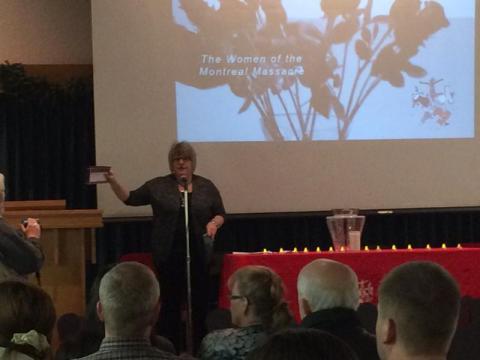
How PSAC is working to end violence against women
December 6 marks the anniversary of the Montréal Massacre, where 14 young women were killed at the École Polytechnique on December 6, 1989.
On this National Day of Remembrance and Action on Violence Against Women, PSAC members across the country renew their commitment to eliminate all forms of violence against women.
PSAC works for women
Violence against women has been a longstanding priority for PSAC members:
- Several resolutions have been adopted throughout the years at the national women’s conferences.
- Members adopted a resolution to develop a domestic violence education training program at the 2015 Triennial National Convention.
- PSAC continues to work with the Canadian Labour Congress to understand how domestic violence affects workers in the workplace.
- We are committed to working to ensure that the inquiry into the missing and murdered Aboriginal women remains a priority on the federal government agenda.
- PSAC has renewed our call for a national action plan on violence against women.
Domestic violence and the workplace
A survey by the Centre for Research and Education on Violence against Women and Children at the University of Western Ontario indicates shocking rates of domestic violence:
- More than one in three working women experience domestic violence in their lifetime (37.6 per cent), and seven per cent are currently victims of domestic violence.
- Domestic violence follows its victims to work in 53.5 per cent of cases.
- Most often, it takes the form of abusive phone calls or text messages, stalking, or harassment near the workplace.
- Domestic violence negatively affects a person’s work performance in 82 per cent of cases.
- Sadly, 8.5 per cent of victims of domestic violence lose their jobs because of it.
PSAC’s women’s forum on domestic violence at work
To explore how PSAC can better support members affected by domestic violence at work, a women’s forum will take place next week in Ottawa. Some of the issues that will be discussed include:
- Workplace accommodations and collective agreement language to help women experiencing domestic violence.
- The potential for legal action and law reform.
- Developing policies and programs to help end violence against women.
For more information, check out the Canadian Labour Congress domestic violence resource centre and the Canadian Network of Women’s Shelters & Transition Houses.
